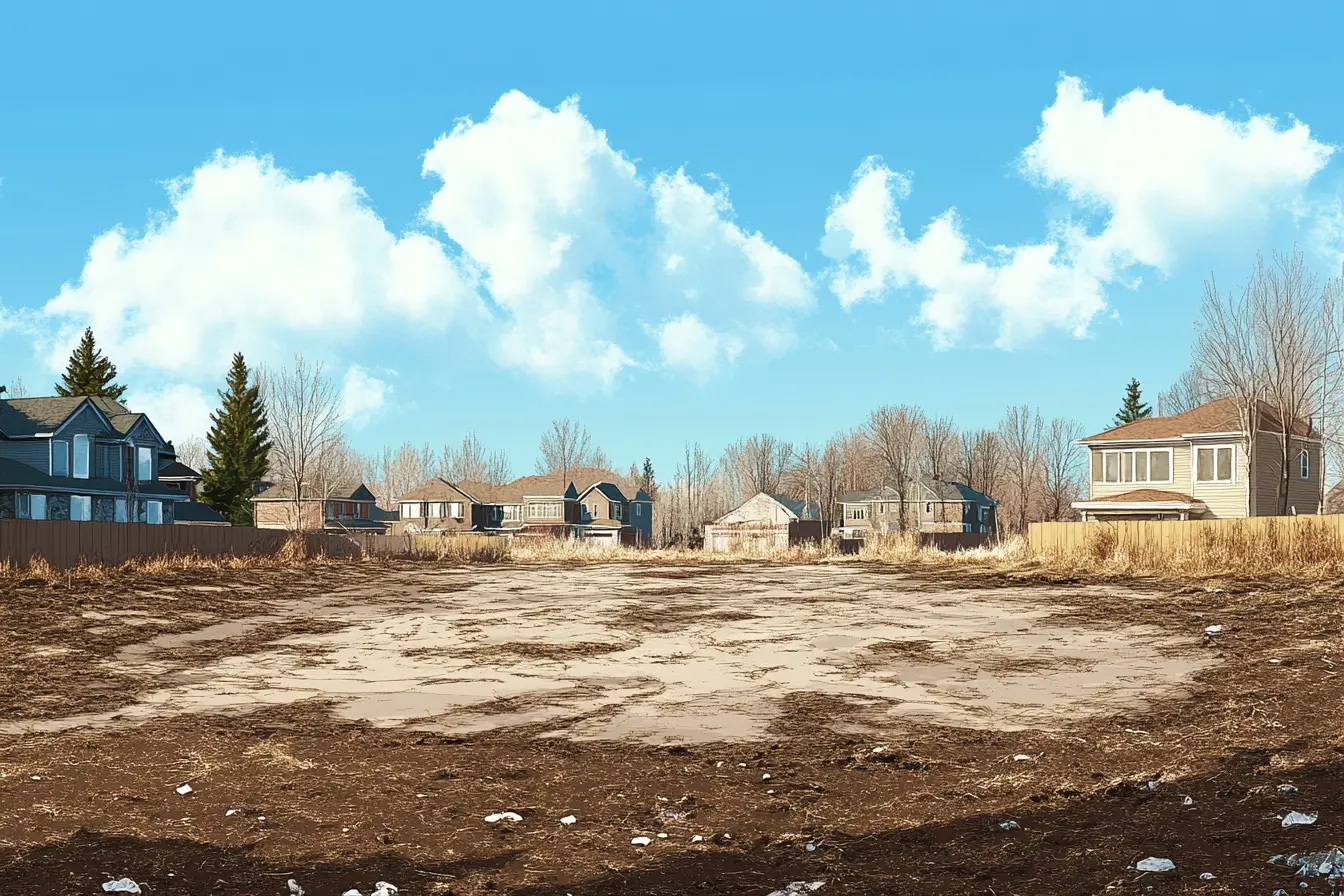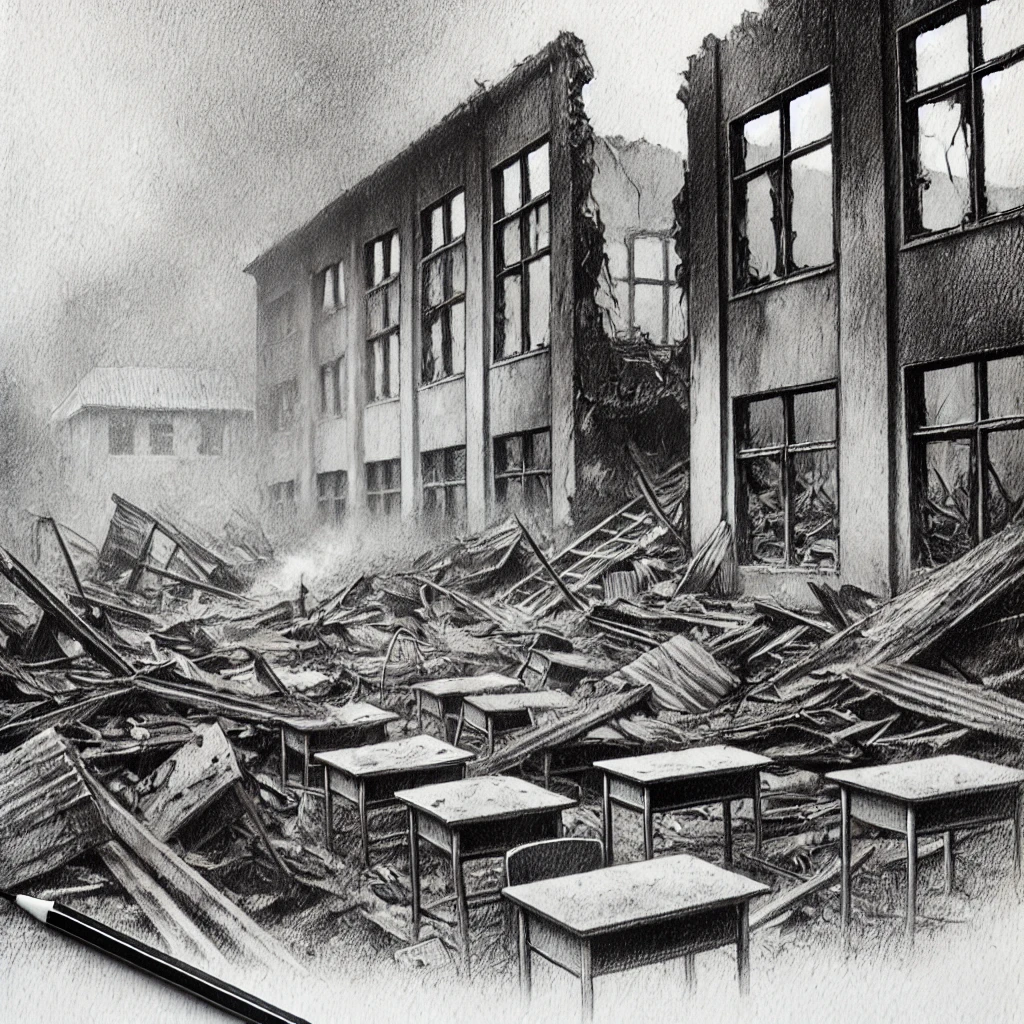Understanding the Value of "Dirt": How Land Value Changes After a Home is Destroyed

When a home is destroyed by fire, natural disaster, or another catastrophic event, most of the focus is placed on the structure itself—but the land still has value. This raises several critical questions for homeowners considering selling their lot instead of rebuilding:
How is land value calculated?
What happens to land value before vs. after a fire or disaster?
How do local amenities, businesses, and utilities impact land value after destruction?
Can you sell vacant land easily, and how do banks and insurers treat it?
This article will break down the factors affecting land value, including market comparisons, economic impact, and strategies for homeowners deciding what to do next.
1. How is Land Value Determined?
Land is a separate asset from the home built on it. Even if a disaster destroys the structure, the land itself may still be valuable—or it could lose value based on market conditions.
Key Factors in Land Valuation
Location – Proximity to desirable areas, schools, and amenities.
Zoning & Land Use – What can legally be built on the lot? Residential, commercial, or mixed-use?
Lot Size & Shape – Larger, regularly shaped lots are worth more.
Utilities & Infrastructure – Whether the land has access to water, sewer, power, and roads.
Market Demand – Whether there is an active market for vacant land in the area.
How Appraisers Determine Land Value
Valuation Method | How It Works | Best Used For |
|---|---|---|
Sales Comparison (Comps) | Compares similar nearby land sales | Residential areas |
Income Approach | Estimates value based on potential rental or business income | Commercial land |
Cost Approach | Subtracts structure value from the total property value | Unique or undeveloped land |
More info: Understanding Land Appraisals - Appraisal Institute
2. Comparing Land Value Before vs. After a Fire or Disaster
Land values can change dramatically after a wildfire, hurricane, or other catastrophe. In some cases, values drop significantly due to damage, loss of amenities, and reduced demand. In other cases, they increase, especially in high-demand areas.
Land Value Before vs. After a Disaster
Factor | Before Disaster | After Disaster |
Market Demand | Strong, with homebuyers actively purchasing | Uncertain, as buyers may be hesitant |
Nearby Amenities | Schools, businesses, parks in full operation | Schools, businesses may be damaged or closed |
Rebuilding Costs | Standard construction costs | Higher costs due to labor/material shortages |
Insurance Considerations | Standard homeowner policies | Higher rates, harder to insure |
Developer Interest | Stable, steady investment | Developers may hesitate or bargain for low prices |
Example: A wildfire devastates a neighborhood in California. Before the fire, land sold for $250,000 per lot. After the fire, with uncertainty around rebuilding costs and insurance, land sells for only $125,000 per lot.
More info: How Disasters Affect Property Values - National Association of Realtors

3. The Impact of Local Amenities Being Destroyed
Beyond just your home, the destruction of nearby schools, businesses, and utilities can affect land value. Buyers and developers may hesitate if essential services are no longer available.
How Loss of Local Amenities Affects Land Value
Amenity Lost | Impact on Land Value |
Schools | Families with children may move away, reducing demand. |
Grocery Stores & Retail | If daily necessities are unavailable, fewer people want to live nearby. |
Hospitals & Emergency Services | Longer emergency response times lower desirability. |
Public Utilities (Water, Power, Sewer) | Land without access to utilities loses significant value. |
Roads & Public Transit | If major roads or transit systems are damaged, commuting becomes difficult. |
Example: After Hurricane Katrina, entire neighborhoods in New Orleans saw land values plummet because utilities and schools were destroyed. Some lots were abandoned, while others were bought at discounts by developers willing to invest in long-term rebuilding.
More info: FEMA’s Guide to Rebuilding Infrastructure - Federal Emergency Management Agency
4. Can You Sell Vacant Land After a Disaster?
Yes, but the process is different from selling a home. Since there is no house to inspect, buyers focus on zoning, development potential, and risks.
Steps to Selling Vacant Land After a Disaster
Get a professional land appraisal – Understand current market value.
Check zoning & rebuilding restrictions – Some areas may restrict rebuilding after a disaster.
Determine infrastructure access – Are utilities restored or does the buyer need to install new connections?
List with a realtor who specializes in land sales – Not all realtors handle vacant land sales well.
Disclose any environmental risks – If soil contamination or flood risks exist, buyers must be informed.
Example: In Colorado, after a major wildfire, some homeowners sold their lots to developers who planned high-end rebuilds, while others held onto their land until infrastructure improvements were made.
More info: How to Sell Land After a Disaster - Land.com

5. How Do Banks and Insurers Treat Vacant Land?
Banks and insurance companies view vacant land differently than properties with homes.
Insurance Payouts Do Not Cover Land – Homeowners Insurance only pays for the structure, not the land. That said, there may be options with your insurance Policy in CA in if you are considering selling. Contact a professional at Loti for more information.
Banks May Not Offer Loans for Vacant Land – It’s harder to finance vacant land than a home.
Property Taxes May Change – If your home is gone, your taxes may be reassessed based on land value alone.
More info: Property Taxes After a Home is Destroyed - Tax Foundation
Wrap Up
The value of land can fluctuate significantly after a disaster. Homeowners should carefully assess market conditions, rebuilding costs, and infrastructure recovery before deciding to sell or hold onto their property.
Key Tips
Get a professional appraisal to know your land’s current value.
Monitor infrastructure rebuilding efforts before selling.
Work with a land-specialized real estate agent to maximize your return.